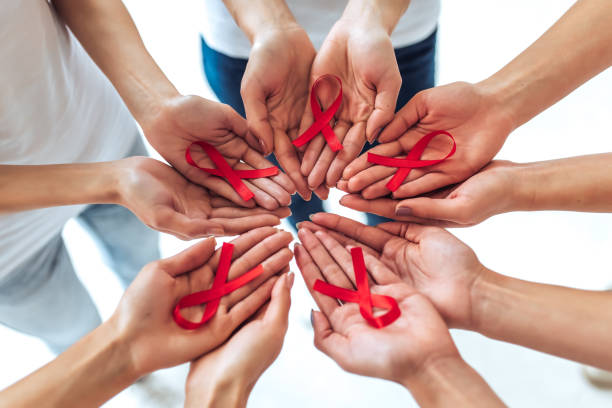9 Steps To Prevent Human Immunodeficiency Virus

Human Immunodeficiency virus, also known as HIV, is a form of virus that
weakens the immune system by attacking the body's natural defense mechanism. HIV
is spread through breast milk, blood, vaginal liquids and semen. The virus can
be transmitted by contacts with sexual partners, sharing needles or from mother
to child when a child is born, during pregnancy or nursing. HIV may lead to
acquired immunodeficiency syndrome (AIDS) the condition which is fatal if
untreated. HIV is a severe and life-threatening condition, but it is
preventable. Nine simple steps that you can adopt to stay clear of HIV. Go here
to learn more about aids2010.org/ right
now.
Step 1: Practice Secure Sexual Activity
The most frequent method by which HIV can be transmitted is via sexual
contact that is not secured. So, having safe sex is one of the most effective
methods to avoid HIV. Always use a condom during sexual interactions to lower
the risk from HIV transmission. If you're unsure of the status of your partner's
HIV situation, make sure to use a protection. Additionally, avoid engaging in
risky sexual behaviors such as having multiple partners or engaging in sexual
interactions with those who inject drugs.
Step 2: Regularly Examine Yourself
Regular HIV tests are essential for prevention. You can take necessary
measures to avoid transmission by knowing the details of your HIV status. If
you're positive for HIV and you are positive, it's best to start treatments
immediately to avoid the infection from developing into AIDS. Tests for HIV are
quick, confidential and simple to conduct. Tests can be conducted at your local
health clinic or by contacting your health care provider.
Step 3: Avoid Sharing Sharp Needles
Sharing needles is one of the most frequent ways to contract HIV. Be sure to
never share any injection equipment or needles if you use substances. Use a
needle with a clean surface and sterilize any injection equipment prior to
using. You can ask for help by contacting your doctor or local harm reduction
programs in the event that you are unable to obtain new needles.
Step 4: Prophylactic treatment prior to exposure is an excellent alternative
PrEP is a medication that's taken daily that can reduce HIV infection risk in
those who have a high chance of contracting HIV. For PrEP to work, it must be
taken every day. PrEP is prescribed from your physician.
Step 5: Treatment Sexually Transmitted Infections (STIs)
Being a victim of a sexually transmitted infection (STI) raises the
likelihood of contracting HIV. It is therefore essential to be examined as well
as treated for STIs frequently. Treating STIs could help stop the transmission
of HIV during sexual activity.
Step 6: Practice Safe Blood Transfusion
If the blood has not been tested properly for HIV the virus can be
transmitted through transfusions. Be sure to ensure that the blood you get when
you receive a transfusion is tested for HIV. If you decide to donate blood, you
should also provide the blood bank with any information you have regarding your
HIV status.
Step 7: Remove Razors and Toothbrushes
Sharing toothbrushes and razors could cause the spread of HIV via blood. It is
therefore essential to avoid using disposable razors and toothbrushes or ensure
that any recyclable products are sterilized properly prior to usage.
Step 8: Seek treatment for HIV
It is crucial to start the treatment right away following an HIV diagnosis.
Antiretroviral therapy (ART) helps suppress the virus and reduces the
possibility of transmitting. Additionally, it prevents progression to AIDS. The
treatment can help you maintain a positive and healthy life with HIV.
Step 9: Learn About Yourself and Others
The importance of education is HIV prevention. Be aware of the risk of HIV
and the best ways to stop transmission. Inform others about the risks of HIV and
the most effective ways to prevent the spread. Encourage open communication and
help for those who could be susceptible to HIV and offer resources for treatment
and testing.
Conclusion: HIV is a grave and life-threatening illness, however it can be prevented. by practicing safe sex and getting regularly tested avoid sharing needles, taking into consideration PrEP and treating STIs and undergoing safe blood transfusions with disposable razors and toothbrushes, seeking treatment for HIV as well as educating both yourself and your loved ones to reduce your risk of contracting and transmitting HIV. In the battle against HIV prevention is vital. It is crucial to take every step you can to prevent yourself from contracting HIV and to help other people.
Коментарі
Дописати коментар